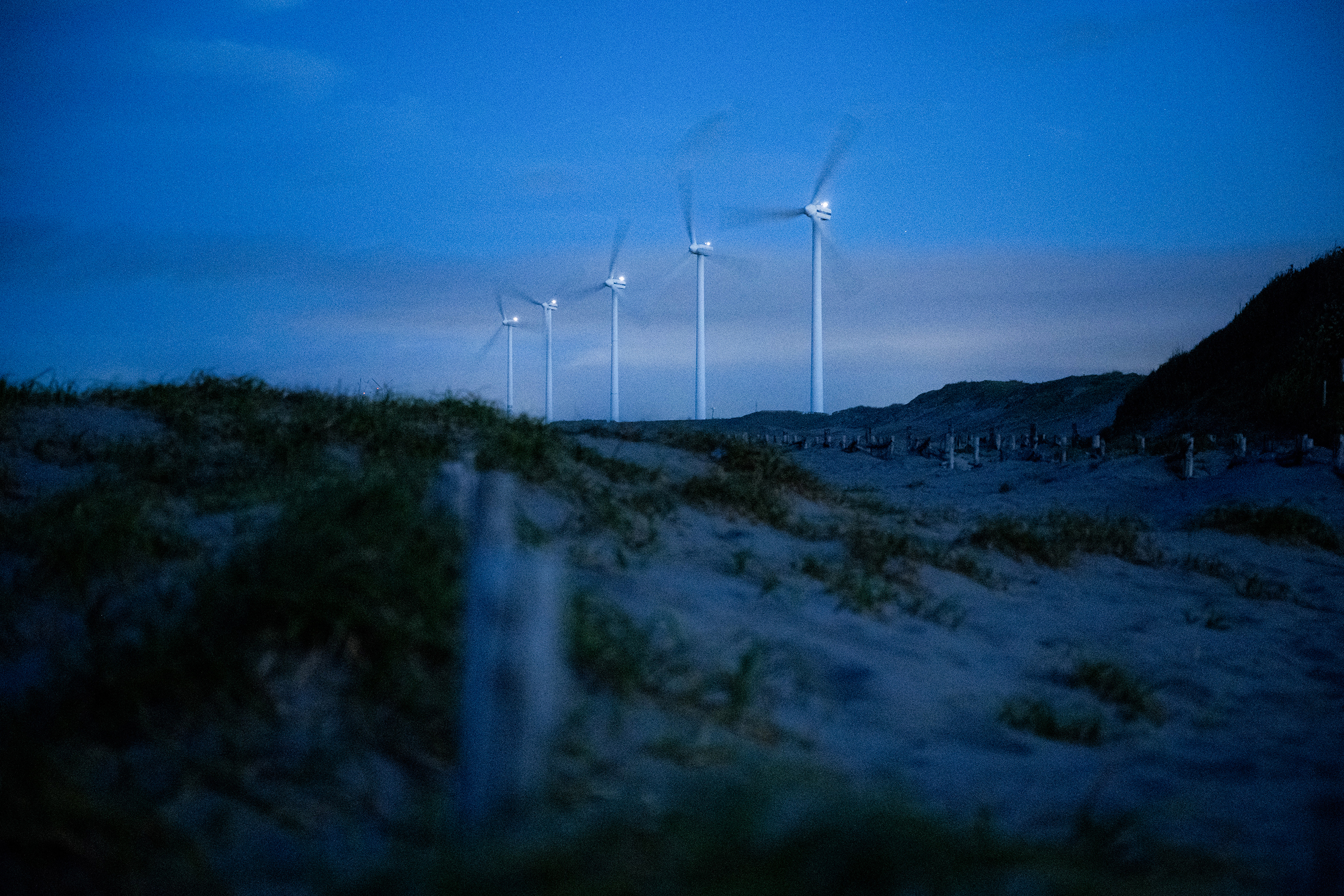When I started working 20 years ago on a review of the economics of climate change for the Treasury, many of the impacts of climate change were theoretical and in the future.
It’s now devastatingly clear, from experience and continuing advances in science, that we underestimated the scale of the risks facing the world.
It’s not just the damage from extreme weather, such as the devastating floods in Pakistan this summer, or Hurricane Melissa, that threaten our economies, but the possibility that we might breach thresholds in the climate system, such as destabilisation of the polar ice caps in Greenland and west Antarctica, the collapse of the Amazon forest system and the thawing of the permafrost.
Every time we look at the science, with every IPCC report, the risks seem even worse.
My review, published in October 2006, concluded that the costs of avoiding the great risks from climate change (around 1% of global GDP per year) would be lower than the costs of inaction (between 5% and 20%). Now the conclusion is even stronger. The questions are no longer about whether to act. They are about how.
Related articles:
We have in our grasp an approach to growth and development which breaks the link between economic activity and environmental destruction, and which is much more attractive than the dirty, destructive models of the past.
This is not a story of growth forever but of growth over the next three decades, which can deliver development across all its dimensions. Degrowth is not a realistic option. We won’t get to net zero through zero consumption.
In my new book published this week, The Growth Story of the 21st Century: The Economics and Opportunity of Climate Action, I lay out the evidence that climate action, including the transition away from fossil fuels, can boost living standards and prosperity across the world and bring down poverty.
Not only did my review in 2006 underestimate the risks of climate change, but it was too pessimistic about the technological progress that could be made in replacing fossil fuels with cleaner alternatives.
For instance, my team at the Treasury and I did not foresee that the cost of generating electricity from solar panels would fall by 77% between 2014 and 2024, or that battery costs would plummet by 84% over the same period.
We did not expect that the costs of generating electricity from offshore wind would more than halve within 15 years and allow rapid and large-scale deployment in the North Sea, or that sales of fully electric or hybrid vehicles would make up more than half of all new car registrations in the UK this September.
Every time we look at the advances in technology over the past 20 years, the prospects seem better.
In many parts of the world now, solar power can generate electricity far more cheaply than fossil fuels. The clean economy is now cheaper than the dirty economy across sectors that are responsible for around a third or more of current global emissions, without subsidy or carbon price, and that proportion is rising rapidly.
Action on climate change is an investment with high returns. Cities where you can move and breathe are much more productive. Improving resource efficiency, especially in energy, increases productivity and growth. Many of the new technologies show increasing returns to scale.
For all these reasons, climate action is the growth story.
Further, investment in adaptation also delivers: evidence shows up to $10 of benefit for $1 of investment. It makes no sense to build houses and infrastructure, or to follow cropping patterns, as if the climate is unchanged when we know it has changed and is changing.
Action on climate change is an investment with high returns. Cities where you can move and breathe are much more productive
Adaptation and development are intrinsically linked: building effective adaptive capacity is good development, and good development must incorporate adaptation and resilience.
Climate action must be understood as sound and productive investment, not as a cost. The challenge now is to foster and finance the investment, which must substantially increase across the world, particularly in emerging markets and developing economies, to more than $1tn a year in external flows by 2030.
This new growth story can be realised only if governments act to share the benefits and recognise the crucial role that the state must play in creating the right environment for private business to develop and deploy inventions and innovations.
Successive UK governments have demonstrated an understanding of how to foster investment, for example through the process of auctions of contracts for renewable energy, which has provided enough confidence in returns to attract investors, and enough competition to drive down costs over time through learning by doing.
The Climate Change Act 2008 and the Climate Change Committee provide clarity and confidence in the sense of direction, crucial for investors.
However, the loss of political consensus on the need for action is undermining business confidence.
Some politicians argue there is no point in the UK acting if India and China “are doing nothing”.
But I have seen first hand from my time in India and China that both countries recognise that climate change impacts are undermining their economic development. They have identified huge opportunities from investing in clean technologies, contributing to the rise in clean investment. In 2023, for each dollar spent on fossil fuels, $1.70 was spent on clean energy, and it is expected to reach around $2 in 2025.
Countries such as China and India are taking advantage of the rapid growth in demand around the world for clean technologies to expand their manufacturing and exports.
More than one in five cars sold worldwide last year were electric, and China was responsible for more than 70% of global production.
The sticker price for electric vehicles will soon be cheaper than for cars with internal combustion engines in many major countries.
They are cheaper to operate, have lower maintenance costs, and produce far lower carbon dioxide emissions and particulate matter.
According to the World Health Organization, air pollution causes nearly 7m deaths worldwide every year, with many more suffering ill health and disease. This not only harms human health but it undermines the economy, destroying productivity.
We must also recognise that investing in nature offers one of the best ways of protecting human societies.
For instance, mangrove forests in tropical countries provide effective barriers to strong winds and surges from storms; are important carbon sinks; and support ecosystems which communities rely on for their livelihoods.
Methods of hitching economic development to greenhouse gas cuts are well-established: restoring degraded land, afforestation, decentralised solar power, and public transport, to name but a few.
When all of this is put together, it becomes obvious why tackling climate change is the growth story of the 21st century. But we can realise these benefits only if we invest strongly now and break away from the dismal trends of underinvestment that have afflicted advanced economies since the financial crisis.
The world must invest the equivalent of two or three percentage points more of GDP on average and sustain that over the next two decades.
That investment will need to be stronger in the emerging markets and developing countries that will drive world growth in the coming years as they build their infrastructure, grow their economies, and urbanise.
Boosting this financing is a key priority for the Cop30 UN climate change summit next month in Brazil. The multilateral development banks, such as the World Bank, must be bolder in driving the change we need and work more effectively with the private sector to reduce, manage, and share risk and bring down the cost of capital.
Most of the trillions of pounds of investment that are needed over the next few decades will come from the private sector, and it will reap substantial returns from creating cleaner and more efficient power, transport, construction, communications, steel-making, cement-making, waste management and agriculture. Indeed, there is no economic sector that will not offer substantial returns for private investors. But this investment can happen only if there are clear, strong and credible policies to signal direction and create confidence.
Yet I am afraid that some of my colleagues in the economics profession have helped to distort issues and obscure the true scale of the opportunities on offer.
Many of the models they have built largely overlook the major structural, systemic and technological changes we need. And they have not recognised sufficiently the centrality of fostering and financing investment for change.
Finally, economic tools are not enough. We also need political leadership. Unfortunately, we are faced with some populist leaders in the world who are unable or unwilling to confront the reality of climate change. And all too often the failure to understand that climate action is the growth opportunity of the 21st century.
Those leaders who do recognise both the scale of the risks we face from climate change, and the magnitude of the opportunities from pursuing a cleaner, smarter path to growth, must now lead on action that offers the opportunity of better lives for people today and generations to come.
When some step back, others can step forward. The arc of history will be with them.
Nicholas Stern is chair of the Global School of Sustainability and the Grantham Research institute on Climate Change and the Environment at the London School of Economics and Political Science. His book will be published by LSE Press on 5 November
Photograph by Philip Fong/AFP via Getty Images


